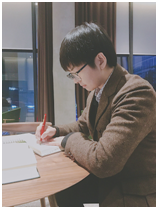 back
back

Liu Yufang
Ph. D of World History/Lecturer
E-mail:liuyufangnku@163.com
Research Areas:
Byzantine History, Medieval History. Focusing on the studies of politics, economy, culture and other fields of the Byzantine Empire during the 11th and 12th centuries. Currently targeting at the political structure and power reconstruction of the Byzantine Empire in this period, tries to explore the reconstruction of the top-level power relations due to the imbalance during this period, also the relations and attributes of the reconstructed powers.
Main Academic Views:
1. Conclusions about the relationship between central and local powers of the Byzantine Empire: In the 1170s, there was a sharp confrontation between the local nobility in Adrianople and the imperial government, as recorded by the representative of the local nobility and historian Michael Attaleiates (c. 1022-c.1080). In the case of the grain reform, Attaleiates attributed the failure of the reform to the evil nature and excessive greed of the administrators. But in fact, the grain reform was implemented by the rulers from the overall interests of the country, in response to the military and social crises faced by the empire in the northwest and eastern frontiers. It was just that the imperial government exposed corrupt and inefficient bad habits in the reform, which violated the rights and interests of the normal life of the people, thus was strongly resisted.
2. Conclusions about the cultural aspects of the Byzantine Empire in the 11thcentury: The historical writing of the empire in this period experienced an important transformation, which was a major achievement in the construction of the imperial culture in this period. In general, the new writing paradigm created by the creative absorption and integration of classical culture by the Christian culture that has achieved absolute dominance is the essence of the transformation of historical writing at this stage. The organic combination of classical and Christian elements, as well as the sublimation of people’s ideological realm brought about by this, prompted Byzantine culture to finally develop to the highest level of maturity. From the perspective of big history, the transformation of history writing at this time was not only an important manifestation of the cultural revival of the Byzantine Empire in the 11th and 12th centuries, but also laid a solid foundation for the arrival of the Renaissance in Western Europe in the 14th century.
Education:
Ph. D, World History, 2012-2017, Nankai University
Joint Ph. D student, Byzantine History, 2014-2015, Ohio State University
Master, World History, 2009-2012, Guangxi Normal University
Bachelor, History, 2005-2009, Northeast Normal University
Teaching
Undergraduate Course: World History 2-1; Byzantine History.
Founded Research Projects
1. 2021-2023, holding “Reconstruction of Byzantine State Power in the 11th and 12th centuries”, Tianjin Philosophy and Social Sciences Youth Project.
2. 2019-2021, holding “Study of the Political Structures of Byzantine Empire in 11th-12th Centuries”, Tianjin Municipal Education Commission Project.
3. 2014-2022, membership of “Study on Byzantine History and Culture”, the major project of the National Social Science Fund of China (NSSFC).
Key Publications
Articles
1. “Transformation of the Byzantine Historical Writing in the 11th Century: Taking Portraits of Zoe and Theodora as Examples”,World History, No. 6, 2018, pp.135-150+160.
2. “A Preliminary Study on the Byzantine Corn Reform Recorded by Attaleiates”,History Teaching, No. 6, 2017, pp.45-50.
3. “Reasons of the Justinian I’s Anti-Semitic Policies”,Journal of Foreign Studies, No. 4, 2016, pp.16-24+116.
 back
back

